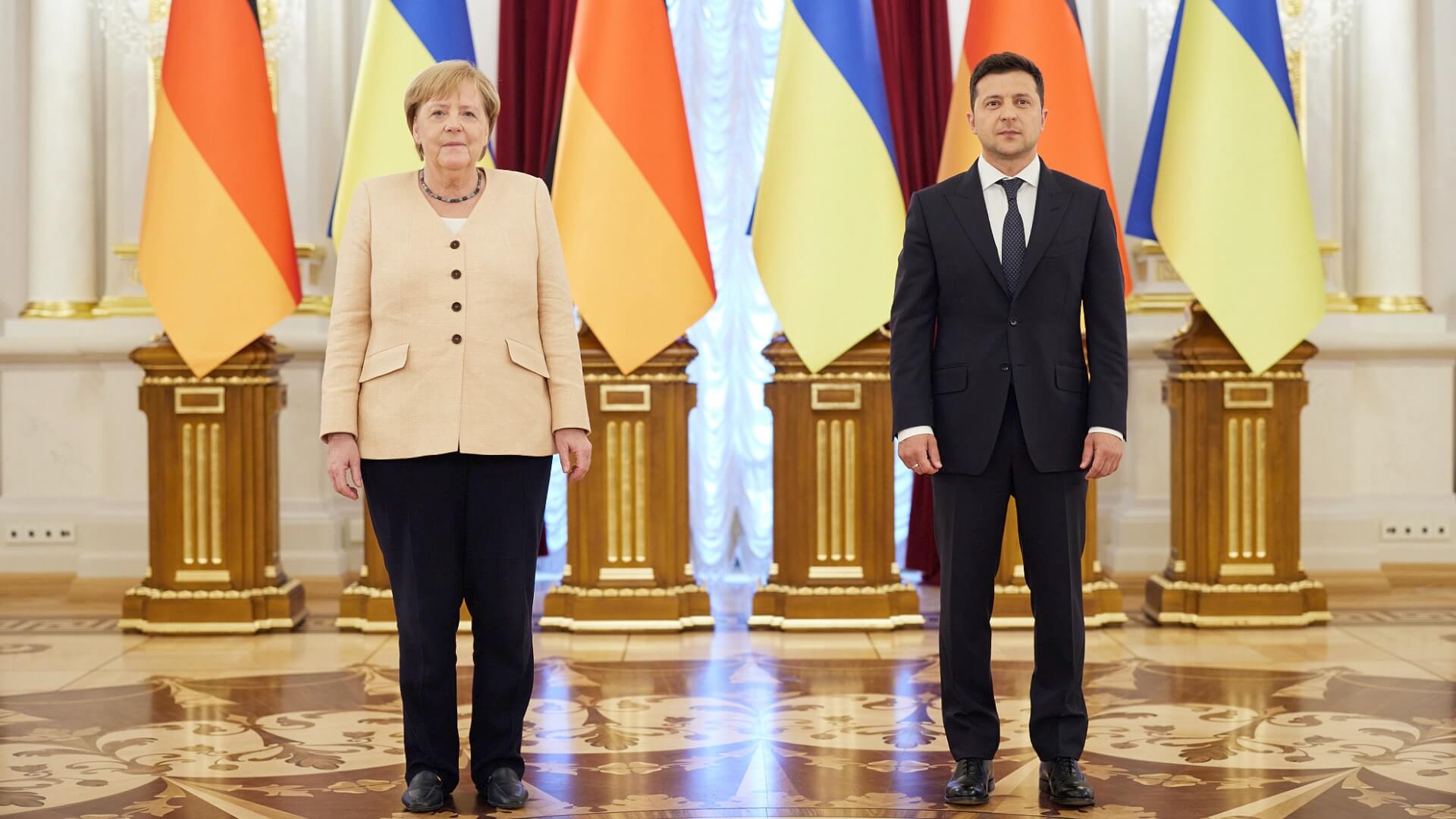German Chancellor Angela Merkel failed to reassure Ukraine about the non-threatening nature of the Germany-Russia Nord Stream 2 gas pipeline and the future of Crimea during her last official trip to Kyiv on Sunday. The meeting comes two days after Merkel met Russian President Vladimir Putin in Moscow.
Merkel, who will step down from her post after parliamentary elections on September 26, told Ukrainian President Volodymyr Zelensky that the gas pipeline would not be used as a geopolitical weapon and that Germany would impose sanctions on Russia if needed. At a joint press conference with Zelensky, Merkel said, “It is important that Ukraine remains a transit land.” She also called for an extension of Ukraine’s existing transit deal with Russia beyond 2024 and committed to supporting the country’s transition to renewable energy.
However, Zelensky said, “We view this project exclusively through the prism of security and consider it a dangerous geopolitical weapon of the Kremlin.” He added, “As for the continuation of transit through Ukraine after 2024, I think that so far, these things are too general.”
Nord Stream 2 is an $11 billion gas pipeline built under the Baltic sea to carry gas from Russia to Germany. Ukraine has firmly stood against the project, citing geopolitical risk and loss of transit fees. The pipeline was also a point of contention between the United States (US) and Germany, with the US fearing an increased European dependence on Russian gas.
However, Merkel’s meeting with US President Joe Biden last month saw an agreement between Berlin and Washington regarding the gas pipeline, which Ukraine sees as a betrayal. The agreement eliminated US sanctions and ensured the pipeline’s completion, which will deprive Ukraine of valuable transit fees worth $1.5 billion per year.
In this regard, on Monday, the energy ministers of Ukraine, Germany, and the US discussed “a number of steps that can be taken together in terms of real guarantees for Ukraine regarding the preservation of transit.” The meeting took place on the sidelines of the Crimea platform conducted to keep the international community focused on returning the Crimean peninsula, annexed by the Russian federation in 2014, to Ukraine.
In Sunday’s meeting, Merkel also hoped for more progress in peace talks between Ukrainian troops and Russian-backed forces fighting a war in the eastern Donbas region. In addition, the German Chancellor called for a “Normandy format” that would allow for negotiations between Germany, France, Russia, and Ukraine over eastern Ukraine.
The fighting in eastern Ukraine has been raging since 2014, resulting in the deaths of more than 14,000 people. Concerning this, Zelensky said, “Kyiv is seeking a permanent cease-fire in eastern Ukraine, a prisoner exchange, open crossings at the line of contact and to ensure Red Cross access to the conflict zone.” He added, “As long as there is no progress, the pressure on Russia should continue. We want to see active efforts of our Western partners.”
Merkel assured Zelensky that her commitments to support Ukraine are binding on future German leadership.
Against this backdrop, Kyiv-based political analyst Volodymyr Fesenko told the Associated Press that “it was no surprise” that the leaders did not announce any groundbreaking agreements during the meeting. “There were no big expectations from Merkel’s visit,” he added.

